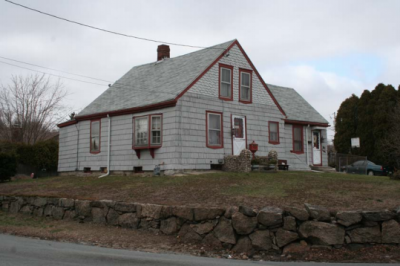Historical Commission hopes to inventory nearly 100 historic properties
The Dartmouth Historical Commission hopes more funding will help the Commission build a greater understanding of the history of Dartmouth through its buildings and homes.
The Commission plans to document the histories of 92 historic homes with the help of a $10,000 grant from the Massachusetts Historical Commission, which the Commission has applied for. All the chosen properties are lacking documentation, including information like comprehensive deed research, historical narratives, and mapping to historic maps.
“Our history, our roots, our properties, our landmarks, our resources are important and have been invoked in the town’s master plan,” said Diane Gilbert, a member of the DHC and president of the Dartmouth Heritage Preservation Trust.
Of the properties, two are reported to be built before 1700, 35 before 1800, and 55 before 1900.
“We had to prioritize in terms of the oldest and also the ones that have some compelling stories to tell,” Gilbert said.
According to the grant application, complete records are vital to the Historical Commission’s work. Records both help inform the public, and allow the Commission to make informed decisions about whether or not to save threatened properties from demolition. Records also help inform preservation projects, like applications to the National and State Registers of Historic Places or for Community Preservation Funds.
The list includes properties from all over town, including homes on Old Fall River Road, Elm Street, Potomska Road, and Russells Mills Road.
Diane Gilbert would be the local project coordinator, and would work with a professional preservation consultant and meet with Massachusetts Historical Commission officials throughout the project.
“What we’re looking to do is enter into another phase of doing more historic inventories for the town,” Gilbert said. “These are very important for the entire town, not just for the historic commission to make decisions about demolition delay, which is one of the bylaws that usually forces us to kind of look at the history of the property, and sometimes we have to scramble because we don’t have enough information available to us.”
In addition to funding, the grant would allow the Commission to work with the Massachusetts Historical Commission’s oversight, guidelines, and methodology.
“At the end of the day, these inventories belong to the community,” Gilbert said. “In fact, they belong to the entire state, because these end up in a database with the Massachusetts Historical Commission where anybody can log on and access any town.”
The grant winner will be chosen on March 13. If Dartmouth is approved, the town would match the grant with up to $15,000 in Community Preservation funds. Community Preservation funds are raised through a property tax surcharge and may only be used for certain purposes.















